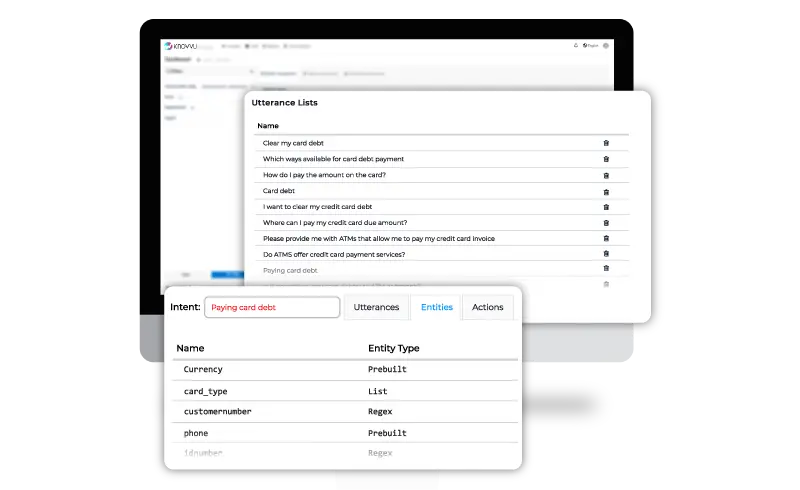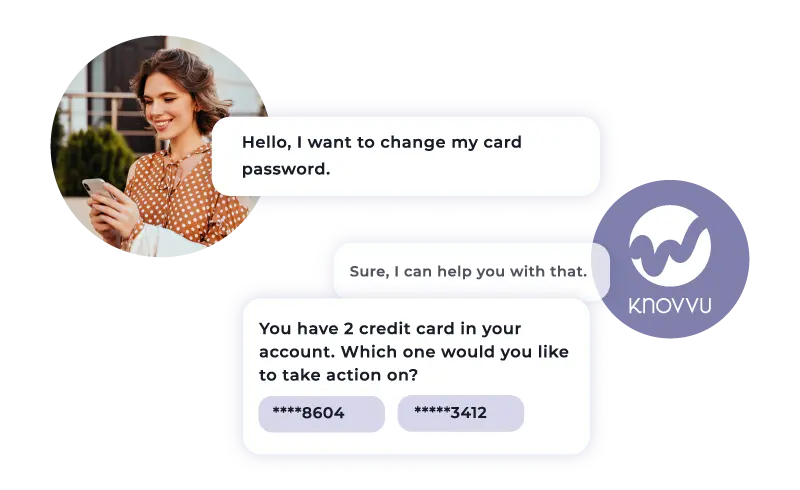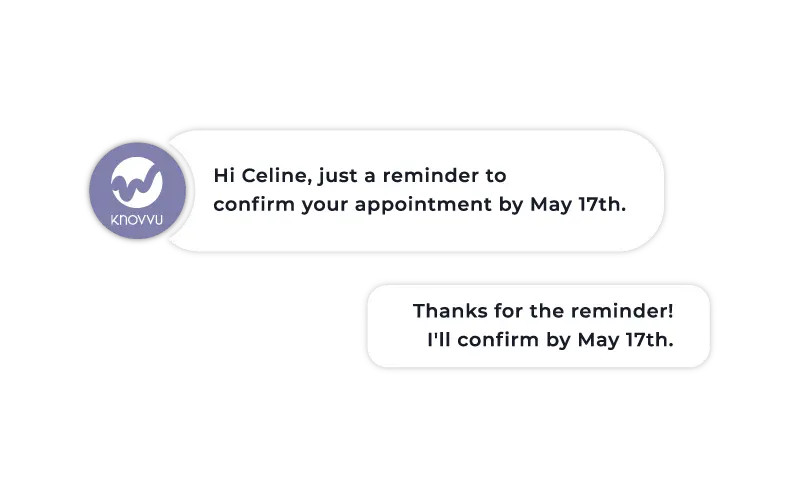AI-based virtual assistants are gaining popularity across various industries, fueled by advancements in Generative AI. These tools offer a range of benefits, from enhancing customer service and employee support to automating routine tasks and providing 24/7 assistance.
In this blog post, we’ll explore 10 use cases for AI-powered virtual assistants, demonstrating how they boost operational efficiency and deliver personalized, seamless experiences.
How Different Industries Use Virtual Assistants
1. Banking and Finance
Virtual assistants in banking and finance enhance customer service and simplify financial operations. They assist customers with tasks such as checking account balances, making transfers, paying bills, and answering frequently asked questions. For example, a customer might ask a virtual assistant to retrieve their recent transaction history, set up a recurring payment or manage financial calculations—tasks that can be completed quickly via speech or text without needing a human representative, thus enhancing the customer experience. Additionally, automating customer services allows banks to provide 24/7 uninterrupted support.

Internally, virtual assistants help financial institutions by automating tasks such as fraud detection, compliance monitoring, and data analysis. For instance, a virtual assistant might scan transactions for suspicious activity and alert the appropriate team or assist employees in locating relevant financial data swiftly. By managing these routine tasks, virtual assistants help reduce the risk of human error, ensure regulatory compliance, and allow employees to focus on more complex and strategic activities.
2. Customer Service
Virtual assistants enhance customer service by providing immediate, round-the-clock support. They handle common inquiries such as order status, account information, and troubleshooting, enabling customers to get quick answers without waiting for a human agent. For example, a customer might use a virtual assistant to reset a password directly, avoiding lengthy phone menus and long wait times.

When needed, virtual assistants can escalate issues to human agents, ensuring customers receive comprehensive assistance. For instance, if a customer has a complaint that the virtual assistant cannot resolve, it can seamlessly transfer the conversation to a human representative with all the relevant information. These capabilities not only improve the customer experience but also reduce the workload on human agents, allowing them to focus on more complex issues and increasing overall efficiency.
3. Telecommunications
In telecommunications, virtual assistants enhance customer support and service management. They handle routine tasks such as answering frequently asked questions about service plans, troubleshooting common issues, and guiding customers through account management. For example, a virtual assistant can help a customer adjust their internet settings or troubleshoot connectivity problems by providing step-by-step instructions. This reduces the burden on human agents and ensures customers receive quick and accurate assistance.
Additionally, virtual assistants assist in managing service requests and scheduling maintenance. They can automatically process service tickets, track repair requests, and send reminders about upcoming appointments. For instance, if a customer needs to schedule a technician visit, a virtual assistant can handle the booking process and confirm the appointment, ensuring timely and efficient service. This improves operational efficiency and customer satisfaction by providing prompt support and reducing wait times.
4. Government and Public Services
Virtual assistants are enhancing government and public services by increasing accessibility and efficiency. They handle tasks such as answering frequently asked questions, guiding users through government websites, and assisting with online form completion. For example, a virtual assistant might help someone navigate the process of applying for a driver's license renewal or provide information about public health services, all without requiring direct human interaction.
These assistants also improve efficiency by managing routine inquiries, freeing up government employees to focus on more complex tasks. For instance, in Türkiye, the Directorate of Immigration Management partnered with SESTEK to enhance their call center services using AI-powered conversational technologies. By implementing speech-enabled IVR in seven languages, they automated responses to common inquiries, significantly improving efficiency and caller experience.
5. Healthcare
Virtual assistants in healthcare enhance patient care and improve administrative efficiency. They provide 24/7 support by answering patient inquiries, scheduling appointments, and sending reminders for medication or follow-ups. For example, patients can book appointments or ask health-related questions through virtual assistants, receiving instant responses. This improves patient engagement and reduces the workload on healthcare staff, allowing them to focus more on direct patient care.

In addition, virtual assistants assist with administrative tasks such as retrieving patient information, updating records, and processing insurance claims. By automating routine tasks, they ensure accuracy and efficiency, helping healthcare providers operate more effectively and leading to better patient outcomes and increased overall efficiency.
6. Retail and E-commerce
In retail and e-commerce, virtual assistants enhance customer service and boost operational efficiency. For example, they assist customers by answering questions about product details, tracking orders, and handling returns. This ensures customers receive prompt and accurate information, improving their shopping experience and increasing satisfaction. A virtual assistant on an e-commerce site might help a customer find the perfect product by answering questions about size and availability or guide them smoothly through the return process.

Virtual assistants also support backend operations by managing inventory, processing transactions, and providing data insights. For instance, they can automatically update stock levels and notify the team when products need reordering. They might also analyze sales trends and customer preferences, helping retailers make informed decisions. By automating these tasks, virtual assistants allow retail staff to focus on more complex issues and strategic initiatives, boosting overall efficiency and performance.
7. Automotive
Virtual assistants are widely used as in-car assistants in the automotive industry, enhancing the driving experience through voice-controlled functionalities. By integrating into vehicles, these tools allow drivers to manage navigation, entertainment, and climate control with simple voice commands, reducing distractions and improving safety. For example, drivers can set destinations, adjust the car's temperature, or play music without taking their hands off the wheel or their eyes off the road.
Beyond basic controls, in-car assistants offer advanced features like vehicle health monitoring and hands-free communication. They can alert drivers to maintenance needs and assist with making calls. By providing personalized recommendations and real-time driving support, in-car assistants create a more connected, convenient, and safer driving experience.
8. Education
Virtual assistants are increasingly used in education to support both learning and administrative tasks. They assist students by answering questions about course content, deadlines, or school policies, providing support whenever needed. For example, a student can ask a virtual assistant to explain a concept from a lesson or remind them of an upcoming assignment, making learning more accessible and personalized.
Additionally, virtual assistants help educators and administrators with tasks such as grading, scheduling, and communicating with parents. They can automate routine inquiries, like requests for transcript information or appointment scheduling, allowing educators to focus more on teaching and less on administrative work. This application of virtual assistants enhances efficiency and improves the overall educational experience for everyone involved.
9. Human Resources
Virtual assistants in human resources streamline various HR tasks, enhancing overall efficiency. They handle routine activities such as managing employee queries, scheduling interviews, and processing leave requests. By automating these tasks, virtual assistants free up HR professionals to focus on more strategic activities like talent development and organizational planning.
Virtual assistants also support onboarding by guiding new employees through required paperwork, providing information about company policies, and answering common questions. This results in a smoother onboarding process and reduces the time HR staff spend on repetitive tasks. Overall, virtual assistants enhance HR efficiency and improve employee satisfaction by offering timely and accurate support.
10. Travel and Hospitality
In the travel and hospitality industry, virtual assistants simplify booking processes and enhance guest experiences. They assist travelers by providing information about destinations, helping with hotel reservations, and answering queries about travel schedules. For example, a virtual assistant on a hotel website can help guests book a room, recommend local attractions, or provide details about the hotel’s amenities. This allows guests to quickly access the information they need, making the booking process more efficient.
Virtual assistants also support the management of travel and hospitality services by handling tasks like check-ins, check-outs, processing cancellations, and managing special requests. For instance, a virtual assistant can accommodate a guest’s request for an early check-in or late check-out by checking availability and updating the reservation. This not only improves operational efficiency but also enhances guest satisfaction by providing timely and personalized service.
What the Future Holds
As virtual assistants continue to gain popularity for their numerous benefits, their role in business and daily life is expected to expand. With their ability to enhance efficiency, provide personalized support, and automate routine tasks, it’s easy to envision a future where everyone has a virtual assistant to help with both personal and professional activities.

Explore How You Can Use Virtual Assistants for Your Needs
For more information about SESTEK’s virtual assistant solutions, check out the Knovvu Virtual Agent page.
Calculate the potential savings for your organization using our virtual agent cost savings calculator.
Request a demo today to explore the top applications of virtual assistants for your personal and business needs.









